According to recent research, THC microdoses may have a high potential for treating symptoms of neurodegenerative diseases. Because of its anti-inflammatory and pro-neurogenetic properties, Delta 9 THC might be able to induce neurogenesis in the adult brain.
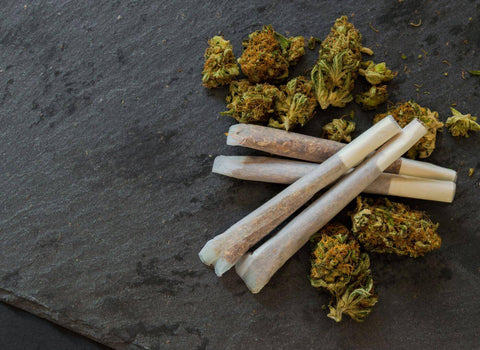
Ingesting quality Delta 9 edibles has no known negative effects on our health. It also shows significant potential for treating symptoms of dementia and improving brain function. We think that low doses of medical cannabis may offer a viable approach for growing new neurons, treating neurodegenerative diseases, and boosting cognitive function after brain injuries.
For more information on what Delta 9 is and how it can boost your health, read our extensive guide to Delta 9 THC.
What is Neurogenesis?
Neurogenesis is the process by which new neurons are formed in the brain. The average brain contains 100 billion brain cells, including around 86 billion neurons. Most neurons form prior to birth, during embryonic development. Until the 1990s, neuroscientists believed our brain was incapable of producing additional neurons, but we now know that adult neurogenesis is possible. Neuroscientists have spent the last thirty years attempting to explain how neurogenesis occurs in adults.
How are Neurons Created?
Neuronal brain cells are generated during embryonic development from progenitor cells and neuronal stem cells located in several brain regions, including the hippocampus.
Stem cells can take either of the following routes:
- Divide to produce more stem cells
- Differentiate to make specialized cells such as neural progenitor cells
Neural progenitor cells further divide to generate neurons and glia (non-neuronal cells) within the central nervous system. In our early childhood, neurons continue to be created, but the process gradually declines as we become older.
Before we are born, billions of newborn neurons are produced and differentiated via neural stem cell division pathways. This neuronal diversity impacts both embryonic and adult brain development, laying the groundwork for adult hippocampal neurogenesis.
Adult Hippocampal Neurogenesis
Evidence suggests that creating new neurons in older age may boost hippocampus-regulated functions like mood, learning, and memory. In addition, adult hippocampal neurogenesis could potentially prevent a number of neurological diseases and mood disorders.
Adult hippocampal neurogenesis helps generate the smallest and most numerous types of neurons, known as granule cells. Granule cells cluster within the granule cell layer of the hippocampus, the cerebellum, and other brain regions. The primary function of the granule cell layer is to process and relay visual and motor information for learning and memory from the central nervous system to the entire cerebellar cortex.
If neurons cannot mature and replicate, granule cell layer function suffers. Neural decline in the adult hippocampus is exacerbated by aging, but also by other regulatory factors (physical exercise and stress), which further inhibit cell proliferation. Researchers from the University of Porto believe that this can interfere with the regulation of cognition and emotion and help understand the pathophysiology of mood disorders.
Some experts believe that neurogenesis could improve the core hippocampal functionality. In theory, more hippocampal functionality would lead to improvements in short and long-term memory.
A group of neuroscientists has demonstrated that both embryonic and adult hippocampal neural progenitor cells act on CB1 cannabinoid receptors in rat models. This indicates that cannabinoids promote neurogenesis via their interaction with CB1 cannabinoid receptors in the endocannabinoid system.
As you can see, neurogenesis is a complex process, and it does not end when we are born. People with neurological diseases like Alzheimer's, Parkinson's, or dementia—or who have had a brain injury—may be able to stimulate adult hippocampal neurogenesis with low doses of cannabis.


THC: 10 mg | CBC: 10 mg | CBD: 10 mg | CBG: 5 mg | CBN 5mg
What Neurogenetic Properties does THC Have?
Delta-9-tetrahydrocannabinol (Delta-9 THC) seems to have properties that protect neurons and help them grow, which improves cognitive function.
A review in the European Journal of Clinical Investigation suggests that giving older animals low doses of THC regularly can help their brains work better. The review highlights THC’s abilities to:
- Promote hippocampal neurogenesis
- Protect from inflammation
- Protect against cognitive damage
- Restore memory and cognitive functions
- Block neurodegenerative processes (like Alzheimer’s and Parkinson’s disease)
- Deter memory loss
In 2018 research, rats treated with low doses of THC showed significant differences in cognitive behavior. Their learning and memory functions were improved, leading to the conclusion that THC can increase hippocampal neurogenesis in adult rats.
Recent studies seem to indicate that microdosing THC could reverse brain aging. These are based on adult rat research, and more human studies are needed to assess whether THC can do the same for human brains.
If you’re new to microdosing, you can start with our Energy Gummies. Low doses of THC (2.5 mg) make people feel relaxed, while L-theanine has a longer-lasting effect on reducing anxiety. The amino acid L-theanine enhances alpha brain wave activity and increases levels of dopamine and serotonin.
Effects of Cannabinoids on Neurogenesis
Researchers started looking more closely at the role of THC and CBD in neurodegenerative diseases after a 1998 research article on the neuroprotective effects of cannabis. They found that low doses of cannabis can slow or prevent the progression of neurodegenerative diseases, mainly by promoting the creation of neurons.
The Endocannabinoid System
The endocannabinoid system (ECS) is a complex network of signals and receptors that help regulate important functions and processes in the body—mood, sleep, appetite, and memory, to name a few. The ECS is composed of cannabinoid receptors and signals. CB1 receptors are mostly found in the brain, while CB2 receptors are mostly found in the tissues that make up our immune system.
Preliminary reports suggest that the “modulation of the ECS may constitute a novel approach for the treatment of Alzheimer’s disease.”
An impaired endocannabinoid system can lead to the development and progression of neurodegenerative processes that cause dementia and Alzheimer’s. Stimulating the ECS, on the other hand, could help reverse those same processes—in addition to having other beneficial effects.
The CB1 cannabinoid receptors outnumber other types of receptors in the brain. One of their primary functions is to control neurotransmitters and regulate bodily functions like hunger, temperature, and alertness. Our bodies make natural cannabinoids that have the same structure as the molecules in phytocannabinoids, which are cannabinoids from the cannabis plant. These cannabinoids stimulate CB1 receptors.
The combination of two major phytocannabinoids, THC and CBD, two of the most important phytocannabinoids, seems to work best when taken together. The proposed synergistic interaction of THC and CBD is known as the entourage effect.
The Entourage Effect
THC and CBD both have potent neuroprotective properties. Together, THC and CBD are thought to join forces to produce the so-called entourage effect. In the entourage effect, the beneficial effects of CBD become more pronounced when THC is present, and vice versa.
CBD seems to have an indirect impact on the ECS. It doesn't bind to the cannabinoid receptors in our brain directly. Instead, CBD antagonizes or down-modulates CB1 and CB2 receptors in the presence of THC.
In other words, when CBD and THC are taken together, CBD regulates THC’s interactions with cannabinoid receptors. CBD also improves the safety and tolerability of Delta 9 THC by reducing the likelihood of psychoactive and other adverse effects it may have on our brain.
Interestingly, unlike THC, CBD has no psychoactive effects. To learn more about cannabidiol, check out our detailed guide to CBD.
The entourage effect occurs with the synergistic interaction of full spectrum cannabis. Full spectrum products contain Delta 9 THC, CBD, and other bioactive compounds from cannabis. You can get your ideal full spectrum dose by ordering our organic, all-natural full spectrum gummies. They contain all the cannabinoids needed to boost brain health.
Broad spectrum CBD contains CBD, CBG, CBN, and other minor cannabinoids, but no Delta 9 THC. Our Anytime broad spectrum gummies are packed with 10 mg of custom-formulated broad spectrum hemp extract for the ultimate THC-free experience.
Similarly, our collection of CBN gummies does not contain any THC or THC derivatives. These vegan gummies are the perfect addition to your nighttime routine due to the sleep-promoting properties of CBD and CBN.
To understand the entourage effect better, read our article on the differences between full-spectrum and broad spectrum CBD.
Anxiolytic and Antidepressant Effects
At low doses, nearly all cannabis compounds produce anxiolytic and antidepressant-like effects. Some studies indicate that stress slows cell growth and, in the end, prevents adult hippocampus neurogenesis. Stress, anxiety, and poor mental health all hinder the creation of newborn neurons, and could lead to neuronal death.
Low doses of THC can decrease anxiety (in contrast, higher THC amounts appear to enhance anxious behaviors). CBD has also demonstrated potent anxiolytic and antidepressant-like effects.
According to a 2021 article, low doses of cannabis can alleviate pain, improve sleep and enhance quality of life without producing psychoactive effects. The results of one review article show that cannabinoids may help people with clinical anxiety and depression feel less anxious and less depressed.
Our collection of sleep gummies includes products with higher concentrations of CBD that help fight sleep disorders. These tasty edibles contain less THC, making them an excellent tool for inducing relaxation.
Anti-inflammatory Properties
A 2003 research article found that neuroinflammation (an inflammatory response in the brain) may slow the growth of new neurons in the hippocampus. Inflammation provokes microglia activation in the adult hippocampus, where new neurons are created.
Remember glia, the non-neuronal cells? Chronic activation of microglia releases potentially cytotoxic (cell-killing) molecules that can damage nerves. The research article suggests that when microglia are activated, they prevent adult hippocampus neurogenesis, which contributes to a significant increase in neuroinflammation and cognitive decline.
Low doses of THC have the ability to reduce inflammation. By reducing the number of cytokines, proteins that stimulate the production of inflammatory cells, THC targets and reduces inflammatory processes in the body. Decreased numbers of cytokines slow down the responses of the immune system, which in turn lowers inflammation.
That’s how microdosing THC can fight MS and other chronic inflammatory diseases.
2015 research on medical marijuana found that THC microdoses can relieve chronic pain, including neuropathic pain, cancer pain, arthritis-related pain, and pain caused by inflammation.
Feeling under the weather? Those pertinent migraines won’t ease up? Our Euphoria Sour Berry gummies might just be the perfect solution. The best THC and CBD concentration (10 mg of each) hits the sweet spot for the ultimate pain-relieving euphoria.
All our products are tested in a third-party lab to ensure purity. We care about bringing only the safest, highest-quality edibles to you.
Can CBD Promote Neurogenesis?
According to a study review, both natural and synthetic cannabinoids may be effective in stimulating the growth of neural progenitor cells. CBD, in particular, has been shown to have amazing neuroprotective, pro-neurogenic, and anti-inflammatory effects. It can cause neurons to grow and change, and it can also lower the body's inflammatory processes.
A review on cannabinoids and neurogenesis discovered that CBD can promote the creation of new neurons by increasing cell proliferation.
Another study shows how CBD regulates serotonin receptors. Serotonin is a neurotransmitter responsible for feelings of satisfaction and happiness. Mental illnesses like depression, bipolar disorder, and anxiety show decreased levels of serotonin in the brain.
As we have already seen, anxiety and chronic stress can have detrimental consequences on neurogenesis, but microdosing cannabis might be a safe way to boost serotonin and turn that frown upside down.
Neuroprotective Properties of CBN
Cannabinol (CBN) is a minor cannabinoid. It is produced when THC degrades through air, light, and heat exposure. Even though it comes from Delta 9 THC, in its chemical composition and beneficial properties, it is more similar to CBD.
Curious to learn more about cannabinol? Our comprehensive guide to CBN is exactly what you need.
CBN shows the most potential when it comes to fighting chronic pain and inflammation. A study conducted on rodents indicates CBN can reduce inflammation and pain associated with arthritis.
Researchers at Salk University emphasized CBN’s neuroprotective properties. The dysfunction of mitochondria (energy-producing organelles) is associated with brain aging and age-related neurodegenerative diseases. It seems that CBN shields neurons from dying by reinforcing mitochondria and preserving important mitochondrial function.
A 2005 study found that CBN might be an effective agent in nerve protection as well. As part of the study, 5 mg/kg per day was administered to adult rats with ALS (amyotrophic lateral sclerosis). Over a period of 12 weeks, the rats showed that low doses of CBN administered regularly could delay disease progression and alleviate the symptoms of ALS.
Our CBN gummies are infused with high-quality CBN and CBD, creating the ultimate pain-relieving and neuron-shielding experience. An extra kick of melatonin helps you sleep and relax in a natural, safe way.
Even more information on CBN's therapeutic benefits can be found here.
Product QUIZ
Need help deciding what product is best for you? Take our quiz, just three questions until your perfect match!
Cannabinoids and Traumatic Brain Injury
Cannabis has been used for a long time to help people with traumatic brain injuries (TBI) feel better by relieving pain, reducing anxiety and depression, making it easier to sleep, and reducing inflammation.
Pre-clinical TBI research in rodent models has confirmed cannabinoids’ role in neuroprotection and psychotherapy. Among other results, the research found that medical cannabis could help prevent neuronal death. Acting as a CB2 receptor agonist, cannabis may be able to “improve the adverse outcomes of brain injury, including inflammation, edema formation, and neuronal cell death.”
Similarly, a Neural Regeneration Research study found that, even in the presence of brain trauma, brain cell proliferation is possible. Proliferation and neuronal differentiation of adult progenitor cells help make new neurons; these cells might be the key factor in repairing the central nervous system after TBI.
Headaches and chronic migraines are but a fragment of the symptoms people with brain injuries experience. Taking small amounts of THC every day can relieve migraines. Try our low-THC Bliss gummies for effective pain relief.
Cannabis Legality
Delta 9 is legal on a federal level in the US. Under the 2018 Farm Bill, Delta 9 must be derived from hemp, and the THC content cannot exceed 0.3% by dry weight.
However, the legality of hemp-derived products is determined by each state individually. For example, our Delta 8 products are federally legal, but a number of US states still ban Delta 8 outright.
All our Delta 9 THC edibles are legal in compliance with the Farm Bill. Just to make sure they are legal in your state, read up on our state-by-state guide to Delta 9 legality.
Are you curious about how Delta 8 can boost your health? We’ve got you covered. Check out our detailed introduction to Delta 8 THC.
Is CBD Legal?
The Farm Bill draws a legal distinction between hemp and marijuana. The bill excludes hemp from the legal definition of marijuana (originally defined in the Controlled Substances Act), making hemp-derived CBD federally legal across the US.
Don’t worry, all our products—including our collection of CBD gummies—are federally legal and available for purchase.
We deliver right to your doorstep, wherever you are, so what are you waiting for? Shop now.
Is Sativa or Indica Better to Improve Brain Health?
Indica and sativa are the two main strains of cannabis. They differ in their appearance, growth factors, and effects on our brain.
Indica strains are known for their relaxing effects. They provide a so-called “body high.” Because it makes people feel calm and sleepy, indica may be better at treating pain, anxiety, insomnia, and muscle spasms.
Sativa has an energizing and uplifting effect without leaving you feeling sleepy or heavy. It provides a “head high” that can be helpful in treating depression, stress, and fatigue. Sativa strains are often praised for their ability to boost mood, clear the mind, and wake up the brain.
If you’re trying to decide between sativa and indica edibles, consider hybrid strains, like those used in our hemp-derived Delta 9 THC gummies. A hybrid is a cross between indica and sativa. It has characteristics of both, and depending on the proportions, hybrid strains can be indica or sativa-dominant.
For the best results, we prefer hybrid blends that combine the strengths of both. Remember the entourage effect, where one compound enhances the beneficial properties of another? The same is true with indica and sativa hybrids. Both work together to improve brain health and make it easier to focus and concentrate.
That’s why our Relax Plus gummies combine the perfect amounts of CBD and THC to boost focus, feed the brain cells, and generate a creative spark.
Best THC Edibles for Neurogenesis
Our selection of microdosing edibles rich in THC and CBD presents a mixture of the finest, all-natural ingredients and organic hemp. All our products are tested in third-party labs for safety, purity, and efficacy, so you know you’ll be getting only the best of the best.
- If you find yourself constantly looking for your keys, we have a tasty solution for you. Our Energy Delta 9 Gummies combine 2.5 mg of THC and 5 mg of CBD to keep your brain running smoothly. These fruity bombshells are infused with the most exotic blood orange flavor. They won’t find your keys, but they’ll sure keep you up and running.
- When dopamine levels are low, motivation drops and you lose focus. Hemp Euphoria Gummies might help. An equal amount of THC and CBD bring out that sweet dopamine release, provide an uplifting, euphoric experience, and aid low energy and no motivation individuals. Microdosing THC is a great way to increase levels of dopamine, making you sprightly and energetic throughout the day.
- We’ve mentioned these already, but they deserve another shoutout. Our anxiety-relieving CBN gummies are rich in cannabidiol (CBD) and cannabinol (CBN), two powerful cannabinoids that produce anxiolytic and antidepressant-like effects. They may also reduce the neuroinflammation and pain caused by it.
- Lack of sleep and night agitation are common problems in people with neurodegenerative diseases. A perfect sleep helper is none other than our Sleep Plus Gummies. They are high in CBD (25mg per gummy) and low in Delta 9 THC (2 mg of THC) with a touch of sleep-promoting melatonin. This unique blend of hemp extract will fight insomnia like there’s no mañana.
Where is the Best Place to Buy Delta 9 Edibles?
Wondering where to buy Delta 9 gummies? You can shop for Delta 9 edibles at local CBD stores if you’re feeling lucky. Be sure to do your research so you’re not getting sub-par products and questionable ingredients. If you want the guaranteed best, and to save yourself a trip around time, order the best Delta 9 edibles from us. We’ll deliver right to your door with free shipping.
THC for Neurogenesis FAQ
Sundowning is a common symptom of confusion in patients suffering from Alzheimer’s disease and dementia that often lasts during the night. Patients report restlessness, irritability, and nighttime agitation, all of which disrupt sleep.
Cannabidiol might be a highly effective treatment for symptoms of Alzheimer’s, particularly sundowning. CBD oil helps sundowners by enhancing the health of brain cells. Due to its anti-inflammatory properties, cannabidiol also promotes a healthy endocannabinoid system, which helps improve cognitive functions and fight against age-related neurodegenerative diseases.
We have a perfect way to treat restlessness and agitation. Our Relax Plus Gummies contain 25 mg of hemp-derived CBD with a touch of THC that induce relaxation and put your mind at ease. All our cannabis products contain all-natural, American-grown hemp and only the best ingredients that give the best results.
Cannabidiol is commonly used to treat symptoms of dementia, including anxiety, insomnia, poor sleep, and pain relief. Because of its anxiolytic effects, CBD has been shown to help reduce agitation in seniors with dementia.
Dementia researchers showed that medical cannabis can help manage behavioral symptoms of dementia, like agitation and aggression. A senior may become agitated or anxious in everyday situations. Because of the way dementia affects the brain, sometimes this agitation can even turn violent.
If your loved one has dementia and has trouble sleeping at night, our amazing CBD gummies for sleep could be a great solution.
Brain fog is a temporary mental fatigue, not a medical condition. People who experience brain fog normally find it difficult to focus on tasks, think, or remember. They may also feel disoriented and disorganized for a short period of time. This slow-thinking state of mind is usually caused by chronic stress, anxiety, fatigue, and a lack of sleep.
CBD has outstanding neuroprotective and neurogenetic properties. It promotes adult neurogenesis and produces anxiolytic effects while actively taking part in cell growth and proliferation.
CBD is also great for inflammation. Inflammation not only affects the body but also has negative effects on the brain. After chronic fatigue, sleep problems, and an imbalance in the endocannabinoid system, brain fog can also be caused by neuroinflammation.
Sometimes your gray cells need a little help. In our Bliss Gummies, we combined CBD and THC to help you achieve mental clarity and sharpen your focus. Delicious honeydew melon gummies to the rescue!
Medical cannabis is considered safe. According to the World Health Organization, Delta-9 THC “does not constitute a substantial risk to public health.” At excessively high doses, it can cause some temporary unwanted effects such as anxiety, paranoia, and an increased heart rate. At low doses, it is very benign.
Taking too much CBD can cause short-term side effects like a drop in blood pressure, confusion, and sleepiness. However, these effects usually go away after a few hours.
None of our Delta-9 THC gummies contain high doses of Delta-9, CBD, or other cannabinoids that could cause negative long-term effects.
There are a variety of available cannabis consumption methods. Yet, the best way to microdose THC is via edibles.
Edibles are the best way to microdose THC because they deliver the right amount of cannabinoids in a safe way. With sublinguals and vaping, you can never be sure of the exact amount of THC or CBD you’ve taken. The THC doses in nama CBD products range from 2 mg to 10 mg per gummy. Our edibles give you the exact dosage and the highest quality ingredients.
Our THC drinks are another safe method to consume THC and CBD. As with our edibles, they provide precise dosing and amazing flavor. Try our Buzz Drops THC Mix. It provides an even better "cloud nine" feeling than your regular margarita!
Top Sellers
New? Start with our Ultimate Sampler!

THC: 10 mg | CBC: 10 mg | CBD: 10 mg | CBG: 5 mg | CBN 5mg
Resources
- Eriksson, Peter S., et al. “Neurogenesis in the Adult Human Hippocampus - Nature Medicine.” Nature, 1 Nov. 1998, www.nature.com/articles/nm1198_1313.
- Mira, Helena, and Javier Morante. “Neurogenesis From Embryo to Adult – Lessons From Flies and Mice.” Frontiers, 8 June 2020, www.frontiersin.org/articles/10.3389/fcell.2020.00533/full.
- Toda, Tomohisa, et al. “The Role of Adult Hippocampal Neurogenesis in Brain Health and Disease - Molecular Psychiatry.” Nature, 20 Apr. 2018, www.nature.com/articles/s41380-018-0036-2.
- Baptista, Pedro, and José P. Andrade. “Adult Hippocampal Neurogenesis: Regulation and Possible Functional and Clinical Correlates.” Frontiers, 11 May 2018, www.frontiersin.org/articles/10.3389/fnana.2018.00044/full.
- Calabrese, Edward J., and Alberto Rubio‐Casillas. “Biphasic Effects of THC in Memory and Cognition.” European Journal of Clinical Investigation, vol. 48, no. 5, Wiley, Apr. 2018. Crossref, https://doi.org/10.1111/eci.12920.
- Suliman, Noor Azuin, et al. “Delta-9-Tetrahydrocannabinol (∆9-THC) Induce Neurogenesis and Improve Cognitive Performances of Male Sprague Dawley Rats.” Neurotoxicity Research, vol. 33, no. 2, Springer Science and Business Media LLC, Sept. 2017, pp. 402–11. Crossref, https://doi.org/10.1007/s12640-017-9806-x.
- Bilkei-Gorzo, Andras, et al. “A Chronic Low Dose of Δ9-tetrahydrocannabinol (THC) Restores Cognitive Function in Old Mice - Nature Medicine.” Nature, 8 May 2017, www.nature.com/articles/nm.4311.
- Hampson, A. J., et al. “Cannabidiol and (−)Δ 9 -tetrahydrocannabinol Are Neuroprotective Antioxidants.” Proceedings of the National Academy of Sciences, vol. 95, no. 14, Proceedings of the National Academy of Sciences, July 1998, pp. 8268–73. Crossref, https://doi.org/10.1073/pnas.95.14.8268.
- Benito, Cristina, et al. “The Endocannabinoid System and Alzheimer’s Disease.” Molecular Neurobiology, vol. 36, no. 1, Springer Science and Business Media LLC, Sept. 2007, pp. 75–81. Crossref, https://doi.org/10.1007/s12035-007-8006-8.
- Gould, Elizabeth, and Christian Mirescu. “Stress and Adult Neurogenesis - PubMed.” PubMed, 1 Jan. 2006, pubmed.ncbi.nlm.nih.gov/16411244.
- Jiang, Wen, et al. “Cannabinoids Promote Embryonic and Adult Hippocampus Neurogenesis and Produce Anxiolytic- and Antidepressant-like Effects.” PubMed Central (PMC), 13 Oct. 2005, www.ncbi.nlm.nih.gov/pmc/articles/PMC1253627.
- Martin, Erin L., et al. “Antidepressant and Anxiolytic Effects of Medicinal Cannabis Use in an Observational Trial.” Frontiers, 16 Aug. 2021, www.frontiersin.org/articles/10.3389/fpsyt.2021.729800/full.
- Stack, Sophie K., et al. “Medicinal Cannabis for the Treatment of Anxiety Disorders: A Narrative Review - Current Treatment Options in Psychiatry.” SpringerLink, 23 Apr. 2022, link.springer.com/article/10.1007/s40501-022-00260-8.
- Ekdahl, Christine T., et al. “Inflammation Is Detrimental for Neurogenesis in Adult Brain.” Proceedings of the National Academy of Sciences, vol. 100, no. 23, Proceedings of the National Academy of Sciences, Oct. 2003, pp. 13632–37. Crossref, https://doi.org/10.1073/pnas.2234031100.
- Cross, Jo. “MEDLINE, PubMed, PubMed Central, and the NLM.” Editors’ Bulletin, vol. 2, no. 1, Informa UK Limited, Apr. 2006, pp. 1–5. Crossref, https://doi.org/10.1080/17521740701702115.
- Luján, Miguel Á., and Olga Valverde. “The Pro-neurogenic Effects of Cannabidiol and Its Potential Therapeutic Implications in Psychiatric Disorders.” Frontiers in Behavioral Neuroscience, vol. 14, Frontiers Media SA, June 2020. Crossref, https://doi.org/10.3389/fnbeh.2020.00109.
- Valeri, Andrea, and Emanuela Mazzon. “Cannabinoids and Neurogenesis: The Promised Solution for Neurodegeneration?” MDPI, 19 Oct. 2021, www.mdpi.com/1420-3049/26/20/6313.
- Blessing, Esther M., et al. “Cannabidiol as a Potential Treatment for Anxiety Disorders.” PubMed Central (PMC), 4 Sept. 2015, www.ncbi.nlm.nih.gov/pmc/articles/PMC4604171.
- Zurier, Robert B., and Sumner H. Burstein. “Cannabinoids, Inflammation, and Fibrosis.” The FASEB Journal, vol. 30, no. 11, Wiley, July 2016, pp. 3682–89. Crossref, https://doi.org/10.1096/fj.201600646r.
- Weydt, Patrick. “Cannabinol Delays Symptom Onset in SOD1 (G93A) Transgenic Mice Without Affecting Survival - PubMed.” PubMed, 1 Sept. 2005, pubmed.ncbi.nlm.nih.gov/16183560.
- Hergert, Danielle C., et al. “Use of Medical Cannabis to Treat Traumatic Brain Injury.” Journal of Neurotrauma, vol. 38, no. 14, Mary Ann Liebert Inc, July 2021, pp. 1904–17. Crossref, https://doi.org/10.1089/neu.2020.7148.
- Sun, Dong. “The Potential of Endogenous Neurogenesis for Brain Repair and Regeneration Following Traumatic Brain Injury.” PubMed Central (PMC), 1 Mar. 2014, www.ncbi.nlm.nih.gov/pmc/articles/PMC4146269.
- “The Controlled Substances Act.” DEA, www.dea.gov/drug-information/csa. Accessed 24 Jan. 2023.
- “The Good and the Bad Effects of (-) Trans-delta-9-tetrahydrocannabinol (Delta 9-THC) on Humans - PubMed.” PubMed, 15 Sept. 2004, pubmed.ncbi.nlm.nih.gov/15302527.
nama CBD FDA & Legal Disclaimer
This article is for informational purposes only, and does not constitute medical advice. Our products are not intended to diagnose, treat, cure, or prevent any disease. They are not a replacement for prescription medications and have not been evaluated by the Food and Drug Administration (FDA).
The information provided on this website does not, and is not intended to, constitute legal advice or any statements of the status of any laws. Any information, content, and materials available on this site are for general informational purposes only, and are not intended to be relied upon for any purpose.
Readers of this website should contact their attorney to obtain advice with respect to any particular legal matter including decisions on what products are, or are not, legal to sell, possess, or consume. No reader, user, or browser of this site should act or refrain from acting on the basis of information on this site without first seeking legal advice from their own counsel in the relevant jurisdiction.
Only your individual attorney can provide assurances that the information contained herein – and your interpretation of it – is applicable or accurate for your particular situation. Use of, and access to, this website or any of the links or resources contained within the site do not create an attorney-client relationship between the reader, user, or browser, and website authors, contributors, contributing law firms, or committee members and their respective employers.
More From the nama Family
Small batch edibles crafted for different times of the day and experiences.
About
Learn
Join us on this journey

© Copyright 2026 nama Products LLC. All Rights Reserved.
†These statements have not been evaluated by the Food and Drug Administration. These products are not intended to diagnose, treat, cure or prevent any disease. All information presented here is not meant as a substitute for or alternative to information from health care practitioners. Please consult your health care professional about potential interactions or other possible complications before using any product.
††The information provided on this website does not, and is not intended to, constitute legal advice or any statements of the status of any laws. Any information, content, and materials available on this site are for general entertainment purposes only, and are not intended to be relied upon for any purpose.

By clicking ‘Yes,’ you agree to our
Terms & Conditions and Privacy Policy
123 John Doe Street
Your Town, YT 12345
Store Hours
Sun: Closed
Mon-Fri: 9:00 - 17:00
Sat: 10:00 - 13:00
What to expect at pickup
Closed
Closing at 5pm
Closing at 5pm
Closing at 5pm
Closing at 5pm
Closing at 5pm
Closing at 1pm

![Buzz Packs™ [THC and CBD Powder Drink Mix]](http://www.namacbd.com/cdn/shop/files/nama_buzz_packs_thc_drink_pack_white_background.png?v=1769586244&width=480)
![Buzz Packs™ [THC and CBD Powder Drink Mix]](http://www.namacbd.com/cdn/shop/files/Buzz_Packs_Label.png?v=1769586244&width=480)
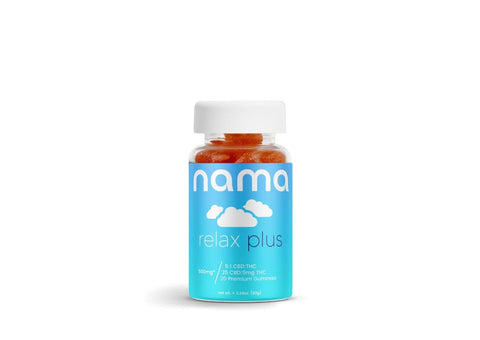
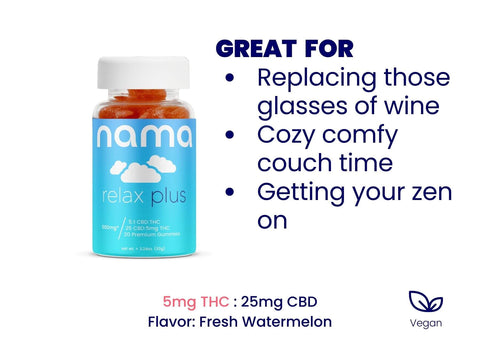
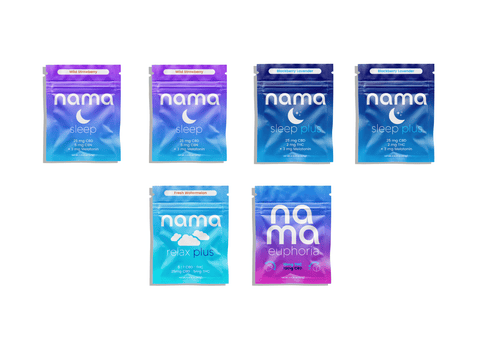
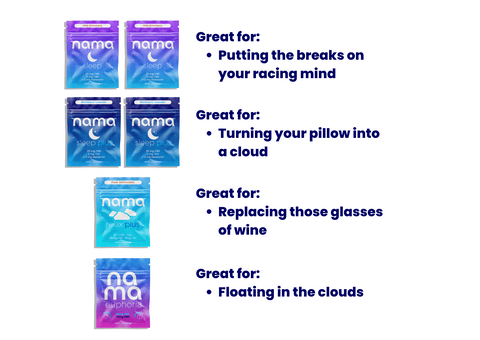


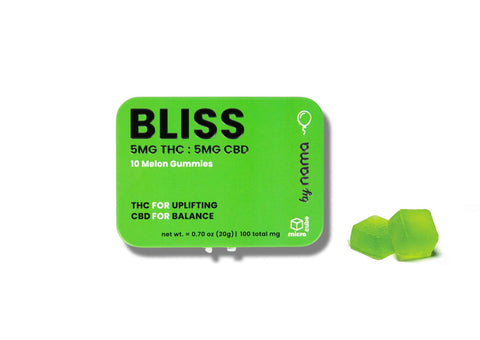
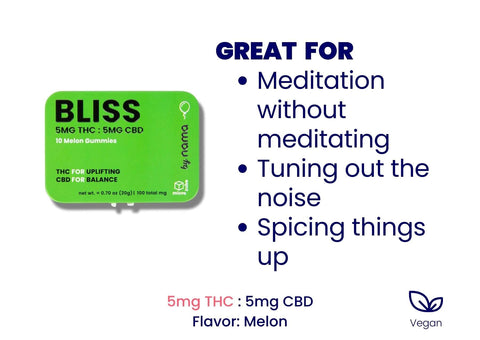
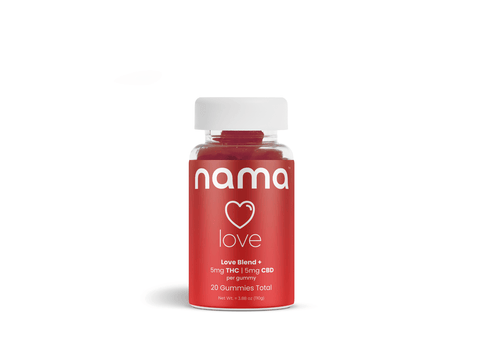
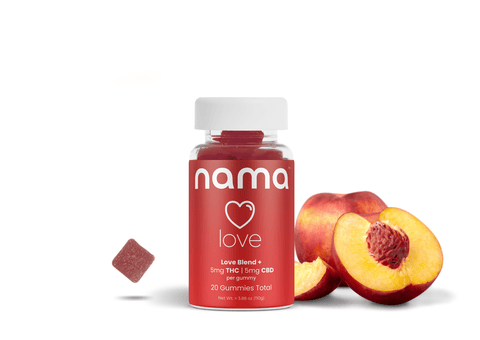
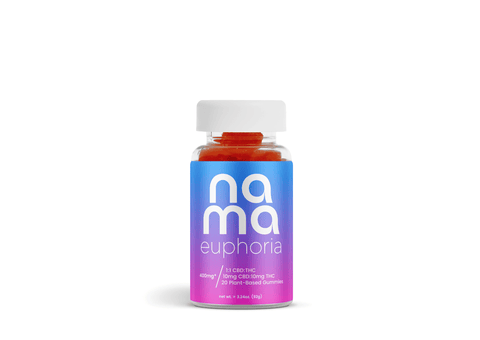
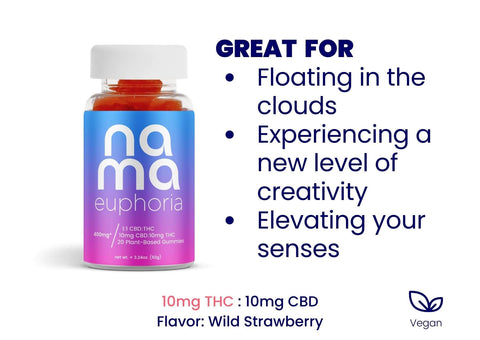







![Buzz Drops™ [THC Drink Drops]](http://www.namacbd.com/cdn/shop/files/nama_thc_buzz_drops.png?v=1711412866&width=480)
![Buzz Drops™ [THC Drink Drops]](http://www.namacbd.com/cdn/shop/files/buzz-drop-wine-comparison.png?v=1736882023&width=480)


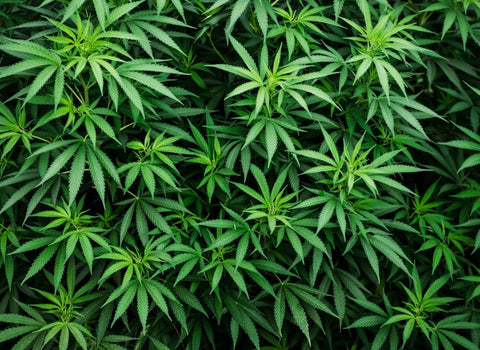

Comments (0)
There are no comments for this article. Be the first one to leave a message!